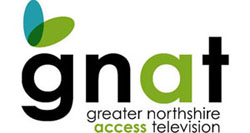FCC – FNPRM
 Despite hearing from thousands of people across the country, on August 2019 the FCC is voted 3-2 to redefine what a franchise fee is. This ruling will radically reduce the level of monetary support available to run PEG access channels across the United States.
Despite hearing from thousands of people across the country, on August 2019 the FCC is voted 3-2 to redefine what a franchise fee is. This ruling will radically reduce the level of monetary support available to run PEG access channels across the United States.
PEG access channels provide government coverage that allows transparency so citizens can monitor local government actions – something vital to the health of local democracy.
PRESS LINKS:
What’s at stake? The FCC rulemaking allows cable companies to assess the value for ‘in kind’ services and deduct that amount from the Franchise Fees used to fund GNAT-TV’s operations; rather than pay it’s commitment in cash, they could make nonmonetary “in-kind” contributions. For example, cable companies could claim that our channel programming guides, live feeds at town halls or even our cable channels have value that equals the amount of our annual funding.
The FCC fails to set any guidelines or limitations to the values that cable companies can assess and it’s conceivable that cable companies could zero out franchise fee payments to Access Centers entirely with arbitrary value assessments. The FCC rulemaking could mean that GNAT-TV and many other centers would lose all operating funding while padding the profit margins of the cable companies.
This rulemaking undermines the intent of the Cable Act of 1984 and pits the interests of communities and the public good for the benefit of the cable company profits.
Background: The majority of our funding comes from the subscribers of the Cable TV system. In the Cable Act legislation of 1984, Congress wisely established Franchise Fees and PEG Fees as a condition for cable operators providing commercial cable TV services. Franchise fees are often described as ‘rent’ for the commercial access and use to the public right of ways. In Vermont, these fees fund the 25 PEG Access Centers as public interest obligations that ensure the commercial media being pumped into residents homes is balanced by meaningful non-commercial, locally originated content. Non-commercial PEG channels provide an important means of free speech, government transparency and communication with residents. It’s important to note that Cable companies do not pay Franchise or PEG fees, these fees are paid by cable subscribers and merely pass through the cable companies. The new FCC rule making will not change the amount currently charged to cable subscribers, it merely allows cable companies to keep this money.
